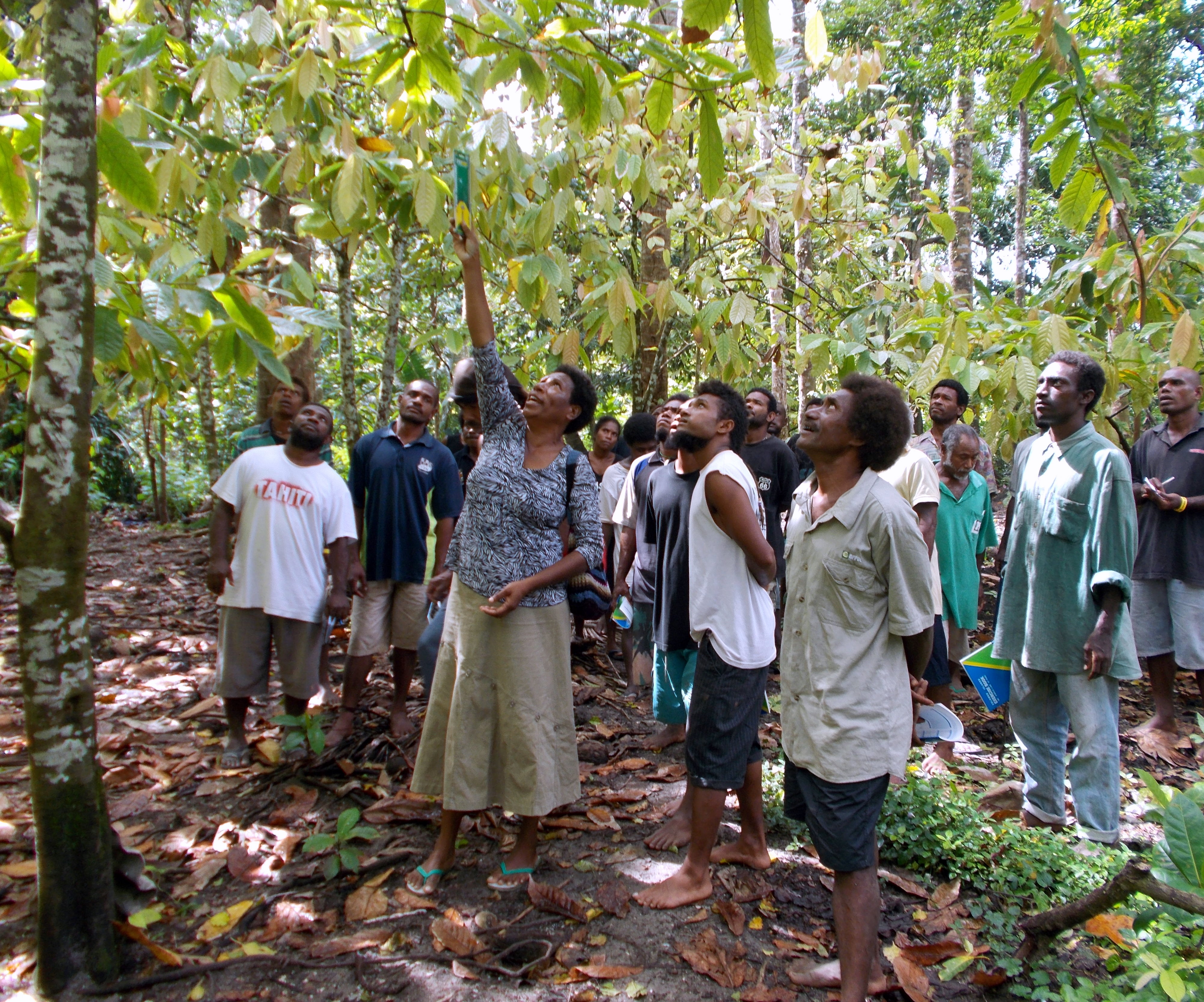Improving lives with cocoa farming
“Cocoa farming has always been my passion,” said Mathew Nialenai, as he walks around his farm in Tawapuna Village in Makira-Ulawa Province, Solomon Islands.
With a plantation of cocoa trees stretching well over a hectare, Mathew has been successful in turning his passion into a livelihood for his family.
Mathew inspecting wet beans at his farm. Photo: Mike Puia/World Vision
With World Vision's help, Mathew’s cocoa earnings helped to pay for his children’s education and renovate the family home. Today, cocoa is his family’s primary source of income.
“My goal is to build a permanent house for my family. I want to also make sure that the needs of my children, who are attending school, are met,” said Mathew.
Harvesting time is a fully-fledged family affair on the farm, with Mathew's wife Salome, their children, in-laws and fellow community members pitching in to harvest, break, ferment, dry and pack cocoa.
Mathew's son helps to harvest cocoa pods. Photo: Mike Puia/World Vision
Even though Mathew had been farming cocoa for most of his life, it was in 2011 when World Vision started its Community Economic Development Project in Tawapuna, that Mathew saw improvements to his cocoa production.
World Vision worked with community farmers and producers, including Mathew, to improve the quality of their agriculture products. In Tawapuna, where cocoa is found in abundance, the project focused on improving cocoa quality, quantity and improving access to markets.
“We did training on integrated pest diseases management; cocoa grading and inspection; financial literacy; marketing skills,” said Mathew.
Staff of the Ministry of Agriculture deliver training at Tawapuna Village. Photo: Sam Faga/World Vision
The project upgraded the community cocoa drier and materials were supplied to build a new storage house to protect the cocoa beans from the weather and maintain their quality.
Tawapuna's modified cocoa drier and storage house. Photo: Mike Puia/World Vision
Cocoa farmers were encouraged to work together and to do collective selling which would give them the power to bargain with cocoa buyers for good prices.
“We gathered our beans and weighed them. We recorded the weight of every farmers’ beans. When we sell the bulk beans, we have a formula to calculate how much money a farmer will get,” said Mathew.
World Vision helped to link Mathew with buyers in Honiara and the group of producers was able to negotiate a better price from the usual SBD$8 per kilogram to SBD$12 per kilogram.
“It’s really good money now compared to before,” said Mathew.
As a result of his commitment to improving his cocoa quality and the progress he has made with his plantation, Mathew is now a trainer for other farmers.
On top of sharing his knowledge and skills with fellow cocoa farmers across Makira Province, Mathew also builds cocoa driers for farmers, according to government specifications.
In mid-2017, Mathew and his fellow cocoa farmers from Makira took part in the first Chocolate Week in the Solomon Islands capital, Honiara.
“We learned a lot of things from the chocolate week in May. Looking into the future, the next thing I want to do is to build solar and sun cocoa driers. This will mean our cocoa will be totally smoke-free and can be sold to buyers at more competitive prices,” said Mathew.
Cocoa sun drying. Mathew aims to have a sun drier to increase the quality of his dried beans. Photo: Sam Faga/World Vision
The Community Economic Development Project is supported by the Government of Australia.
